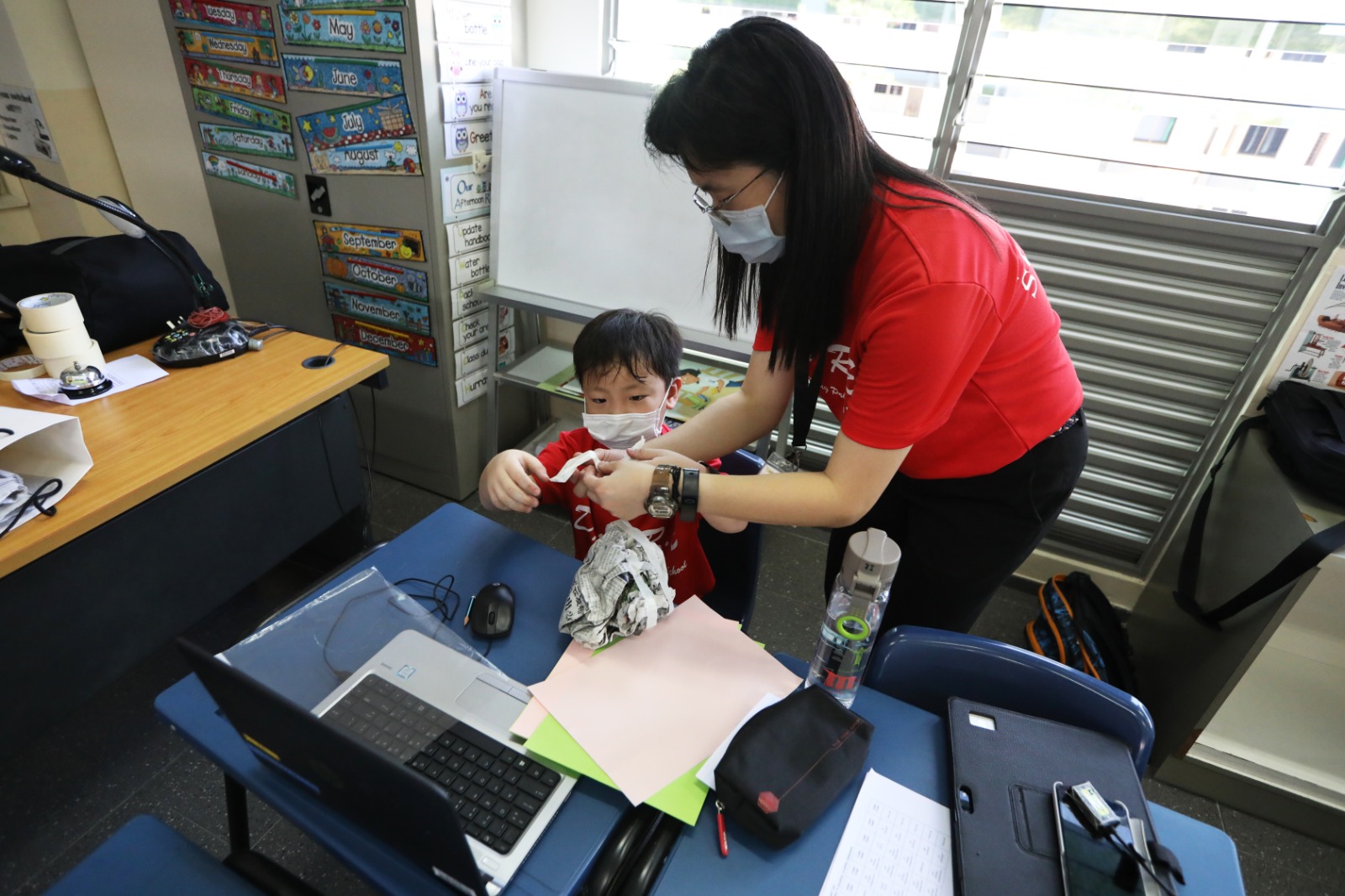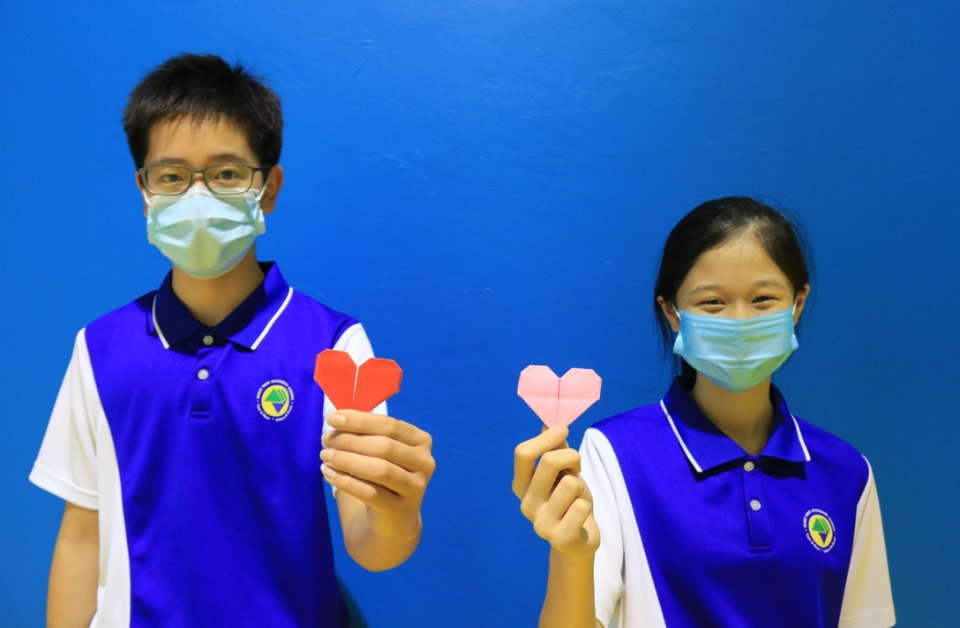In Singapore, a network that includes the Ministry of Education, schools and their staff, and members of the community, comes together to support children with higher needs in a variety of ways.
In a recent visit to Dazhong Primary School, we learned from Principal Rina Liang how the school supports their students on MOE’s Financial Assistance Scheme (FAS).
School and community together
“Being attuned to the financial situation of some of our parents, our School Advisory Committee proposed setting aside funds to support needy families to tide over their finances,” she adds. This amount was specific to the HBL period.
Using this money, the school prepared food packs that were distributed to needy families, with rice, cereals, biscuits, 3-in-1 milo, canned food, instant noodles etc. This was to ensure that the children who need it, are able to eat regularly during the Full HBL period.
The SAC also made provisions for a one-time financial support for students whose parents are retrenched (due to Covid-19) situation for their meals, transport, schooling expenses.
Additionally, Food from the Heart, a non-profit food charity, is also supporting 25 of the families on FAS with monthly provisions. And about half of the high needs students who are in school during this period of HBL received support from The RICE Company Limited – a bento lunch and online learning modules.
During this HBL period, primary and secondary students on FAS receive 4 weeks of school meal subsidies via top-ups to their School Smartcards, which can be used outside of school canteens.
Caring holistically
“All this support encourages our students to know that many people care for them. This in turn will spur them to think beyond themselves, for their teachers and parents, to excel and scale the steep learning curve of self-directed learning in the weeks ahead,” says Mrs Liang.
The children’s’ well-being is also carefully monitored: Children who have inadequate home support or need some extra support, be it for counselling or learning needs are looked after by school counsellors, who follow up with them regularly.
“We are also working with Volunteer Befrienders from the community to augment the school’s monitoring of other students, who may need less intensive support, via Telegram. And we have set up an email (talk2cher@dzps.edu.sg) for our students to share any concerns that they may have,” says Mrs Liang.
On the ICT side, prior to Chinese New Year, proactive efforts were made to nudge parents whose households qualify for the NEU-PC Plus scheme to apply for it.
The scheme, by the Infocomm Media Development Authority, partners a variety of community partners, to allow low-income households with students or persons with disabilities to own a subsidised computer.
However, the school’s ICT team, which regularly conducts surveys of its students and their families, also obtained 80 more devices from NCS, the infotech company, to loan to students before the full HBL rolled out.
“This in turn helped to cut down the number of students who needed to report back to school due to lack of devices, so we could devote our resources and time to uplift our students,” says Mrs Liang.
Still in school
Currently, there are 58 students still going to school – they are those whose parents are in essential services or whose home environments are not conducive to HBL, or who require additional support such as children with SEN, who are on FAS or who have require academic or socio-emotional support.
The school had prepared for 85 places, but after the first week of HBL, with the additional loans and some reshuffling of arrangements by parents, the parents and the school were able to reduce the number registered.
About half of the students in school will go home after the HBL day, but another half stay on in the Student Care Centre, where they get to rest and play a little.
Partnering parents
Dazhong firmly believes in outreach to parents for better student outcomes. It had earlier ensured that the vast majority of its parents are on Parents Gateway (PG) – 96% since Feb 2020. This has allowed for timely communication with regard to HBL matters.
“While parents have had to manage different issues such as supporting more than one child in HBL, learning to use new ICT platforms or juggling HBL while working from home, they have been highly involved and supportive in the HBL process. The parents have actively engaged our teachers to help trouble shoot the online lessons so that their children may follow the HBL schedule well,” she adds, with pride.




584663a7a8a66eb2afccc900c73e6f2e.jpg)

